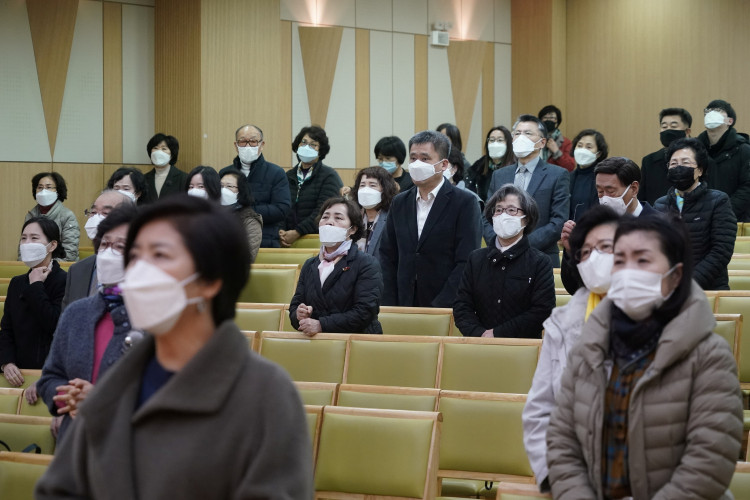The Shincheonji Church of Jesus religious group in South Korea has drawn ire from online users following the country's confirmation that the cluster's coronavirus infections have gone beyond half of S.Korea's total cases.
Shincheoji Church in Center of South Korea's CoVID-19 Crisis
According to the South China Morning Post, social media posts centered on the said religious group have been circulating recently, with some triggering rumors and even fake news about the coronavirus onslaught in South Korea.
A netizen commented online that due to the closure of daycare centers in some South Korean towns, parents are not sure whether working couples can continue with their jobs. "I feel resentment towards the woman from the Daegu church," the commenting netizen said.
Another commentator said it was "rightful" for the Shincheonji group to be criticized because they were said to have initially refused the surrender of their members' directory and contact information at a critical virus stage in the country.
Authorities in Gyeonggi province have since forcibly infiltrated the church's Gwacheon headquarters to retrieve the members' directory. The list of around 250,000 members was submitted to government officials on Wednesday.
However, over 600 of the Daegu church's members could not be reached by the authorities by phone. It remains to be seen whether they will start emerging as the number of infected cases in South Korea spikes.
Church Members Reportedly Met in Wuhan
Another report that caused a stir online was the revelation of a kindergarten teacher who belongs to the church group regarding church services held in December in Wuhan, the coronavirus' origin city.
The teacher alleged that masses were still held despite news of the novel virus in China. The gatherings only stopped when people within the Shincheonji group in Wuhan started getting infected with the CoVID-19 strain.
New Revelations about Shincheonji Policies
Former Shincheonji church members have started sharing their experiences with the religious group, with some unraveling secrets that could help scientists determine how the coronavirus spread among worshipers.
In an interview with CNN, former member Duhyen Kim revealed that even if a member was ill, it was not an acceptable reason for missing mass gatherings or services. Absences were noted through a special card.
Kim went on to reveal that should a member miss the Sunday service, attendance is a must whether for the Tuesday or Monday gathering. The goal was to "make up for the time" that the absent member missed at church.
Aside from strict absence policies, Shincheonji church members were allegedly prohibited from wearing anything on their faces, including face masks and eyeglasses as it was "disrespectful to God."
A statement from the controversial church started by Lee Man-hee in 1984 stated that the group is working with authorities in managing the situation. The church said they are disinfecting church facilities across South Korea.
Authorities Find New Links to Other Religious Sects
Religion is crucial for many people in South Korea but it appears that it has also become the center of outbreaks in the country reeling from over 1,000 confirmed infections.
According to Quartz, another coronavirus cluster has been linked to a different religious sect in Busan, while another was detected to a group of Catholic pilgrims. The said Catholic group recently returned from a trip to Israel.
Authorities further tracked down a cluster of CoVID-19 patients from Seoul's mega Myeongseong church. The said religious group has around 80,000 followers.
Shincheonji, along with other religious sects in South Korea, canceled religious gatherings while the government continues to track people who potentially had contact with confirmed patients.
Philippines Finally Gives in to Health Over Diplomatic Ties
When outbreaks in South Korea first emerged last week, the Philippine health ministry reiterated that there was no need to implement travel restrictions against the country.
South Korea is one of the Philippines' top trading partners. However, things have changed since then and on Wednesday, presidential spokesperson Salvador Panelo announced a travel ban on Filipino tourists to S.Korea.
Asked whether touring Filipinos will be prohibited from traveling to any South Korean town and province, Panelo said yes. The announcement was made during an emergency meeting of the Inter-agency Task Force on Emerging Infectious Diseases.
The only exceptions in the new "temporary" travel ban are Philippine nations who have to leave for their studies, permanent residents, and overseas Filipino workers (OFWs) who will sign an agreement stating they are well-aware of the risks that come with going back to work in South Korea.
South Korea now has 1,146 confirmed coronavirus cases and 11 deaths.






